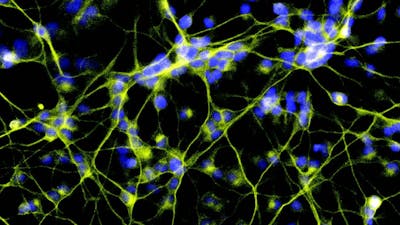GC Therapeutics (GCTx) is overcoming barriers in the development and manufacturing of cell therapies to improve patient access across a broad range of disease areas.
The Problem
Cell therapy is a promising, rapidly advancing form of therapy that is transforming the treatment and prevention of diseases with significant therapeutic need. In cell therapies, specific therapeutic cell types are transferred into patients to directly repair or regenerate damaged tissue and/or cells. To create cell therapy products, stem cells are differentiated outside the body into desired target cell types that can fight a specific disease. However, producing therapeutic cells with maximum functionality (high quality) in culture usually via multiple time-consuming differentiation steps, and manufacturing sufficient numbers of therapeutic cells (large scale) present extremely complex, costly, and time-consuming challenges that prevent many patients from accessing potentially life-saving cell therapies.
Our Solution

A research team at the Wyss Institute and Harvard Medical School led by George Church, Ph.D., and spearheaded by Alex Ng, Ph.D., and Parastoo Khoshakhlagh, Ph.D., in his group, built the first plug-and-play stem cell programming platform, called TFomeTM (Transcription-Factor-ome), that overcomes these problems through the use of transcription factors (TFs). In normal tissue development, many TFs orchestrate the expression of genes that drive the differentiation of stem cells to functional tissue cells. At the core of TFomeTM is a comprehensive library of human TFs and their variants that the researchers screened to identify members with the ability to generate therapeutic cell types in an accelerated one-step process. They found that the introduction of certain TFs into induced pluripotent stem cells (iPSCs), a type of stem cell that has the potential to differentiate into virtually any cell in the body, can generate high-quality cell therapy products without the need for adjusting cell culture conditions, and that these TFs accomplish this significantly faster than conventional cell manufacturing methods.
Product Journey
Following their demonstration that individual TFs are able to program iPSCs into various relevant cell types, including neuronal cells, fibroblasts, nerve fiber-protecting oligodendrocytes, and blood vessel-building vascular endothelial cells in as short as four days, the team set out to extensively validate their TFomeTM platform in combinatorial screens, and proved the functionality of their first therapeutic cell products in additional in vitro studies, and in vivo disease models. In these efforts, Khoshakhlagh and Ng were joined by scientific co-founder Cory Smith, Ph.D., another researcher in Church’s group with expertise in cell engineering and genome editing.
On their journey to move TFomeTM out of the lab and into a company, the team was supported by project grants from the Wyss Institute, and pilot and development grants, as well as extended support from Harvard’s Blavatnik Biomedical Accelerator. This support structure also enabled them to liaise with leading industry experts to further streamline their commercialization efforts.
In 2021, Khoshakhlagh, Ng, Smith, and Church established GCTx with the team moving into Lab Central, a biotech-capable shared lab facility in Kendall Square, Cambridge. Remaining at first in stealth-mode, they completed some of their validation studies while further integrating the use of TFs with gene editing and machine learning capabilities in their TFomeTM platform. Khoshakhlagh and Ng were named to the Wyss Lumineers Class of 2022.
At the official launch of the startup later in 2024, the team had exclusively licensed their technology from Harvard’s Office of Technology Development (OTD), moved to their new headquarters in the Kendall Square area and, importantly, completed a $65 million Series A financing round that raised their total capital to $75 million.
Impact
GCTx with their TFomeTM platform is positioned to pursue multiple cell therapy products from one starting point using a similar manufacturing process for more accelerated development and timelines. While focusing on neurological, immunological, and gastrointestinal diseases first, the versatility and efficiency of TFomeTM also enables GCTx to broaden its reach beyond its core pipeline areas, which can unlock strategic business development opportunities.
